

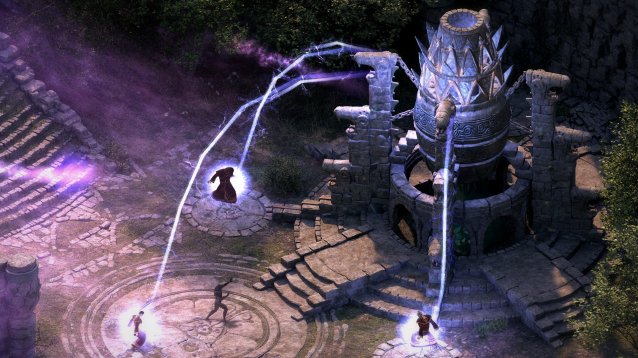
For what seemed like the longest time, I fell out of love with games and gaming. My opinion of games was tinged with a blend of negativity and cynicism that colored my enjoyment of anything the medium had to offer. I was no longer getting out of games the joy and sense of wonder that my younger self would have immersed himself in, especially in the role-playing games of old.
Role-playing games are all about choices, yet seldom do any of them matter in terms of the story. For example, in Diablo, you're tasked with slaying monsters and helping people along the way, but the on-screen action isn’t framed as if it were a product of your agency. Sure, the killing is fun, but you don't have a choice in the matter.
The same can be said of the Final Fantasy games, in which, you're simply along for the ride rather than the one driving the story. Your character may well be the pivot of the story, but the choices he or she makes aren't in any way decided by you—the entire narrative and its conclusion has already been pre-determined by the game’s designers.

The reason I like Pillars of Eternity (PoE) so much is that it diverges from the norm by offering a myriad of choices for the player with heavy consequences. Early in the game, I killed an angry bear and scoured its cave, in which I found a dead man. Communicating with me from beyond the grave, his spirit told me his best friend lured him into the cave, sliced open his leg, and left him to die—mauled to death by the bear I’d just killed, judging from the remains.
I had to decide what to do with a murderer, whom I learned did so at the behest of the deceased man’s wife. I had three options: I could threaten to bring the woman and her murderous lover to the magistrate for their actions, slay them on the spot or, having heard their sob story meant to justify their crime, let them go.
For me, the right path was obvious: Bring them to justice. But for my Paladin avatar, a kind woman with more empathy than sense, the decision was a little more difficult. The issue was complicated by the fact that they had made clear their intent to go down fighting if I chose to bring them to the magistrate.

The woman and her lover told me their reasons for murdering her husband. From all accounts, he was a cruel man. I didn't know what he was like well enough to judge him. But regardless of their reasons, what they did was murder.
Difficult choices abound in PoE, where players may decide the fates of the characters they encounter—or simply choose not to intervene. The world, in return, reacts accordingly. In that sense, PoE evokes classic RPGs like Planescape: Torment, Baldur's Gate and Fallout.
In the end, I chose to let them go. It’s what my character would have done. Would executing them have been more righteous? Either way, I was acting as judge and jury to these two individuals. Who was I to decide their fate? Oh yeah, I was the protagonist.

Around 20 hours into the game as my Rogue (a separate playthrough from my earlier Paladin avatar), I came across the option to support a local merchant who had incurred the wrath of an organized crime family known as the Doemenels. He sent me on a mission to deliver a package -- a simple fetch quest that was light on the details. Shortly after I was accosted by a member of the Doemenels family, a woman who warned me that I was about to wander into a messy situation. Instead of attacking me, she gave me two options: To step aside as they dealt with the merchant, or to serve her family's interests. I could also stand in defense of the dishonest merchant who tried to trick me into serving him.
I knew that earning the favor of the local crime syndicate would have given me in-roads into the local politics of the area. My character was not averse to dealing with shady characters or performing less-than-virtuous actions; I knew exactly who to support.
The merchant did not live for very long. I dispatched him and his party of guards with the aid of a few Doemenel thugs, much to their approval. Despite having no forgiveness for the merchant's duplicity, I looted a pistol named Forgiveness off his still-warm body. Had I chosen to support the merchant, I would find myself on the receiving end of surprise ambushes by members of the Doemenel family.The organization could have provided me with quests, had I chosen to side with them.
My Rogue, now equipped with a powerful weapon, was better off for it, and the party was one step closer to getting a sponsor in the region.

Choices and consequences aren't the only things that bring PoE to life. Obsidian's knack for worldbuilding extends even to random artifacts littered throughout the world, all of which have some flavor text that lend credence to a believable setting.
Early on in my adventures, I stumbled across a pair of gloves belonging to an explorer named Fulvano. Throughout the early areas of the game, I would find letters left by Fulvano on the desiccated bodies of dead travelers who failed to traverse the Dyrwood wilderness, leading me to question where Fulvano had gone and why so many people had his possessions.
The mystery of Fulvano was just another detail to note in PoE’s worldbuilding, which is made up of countless facets of information that help bring its setting to life. Of course, you can also read the many long and well-written texts scattered throughout the game in books, which serve to bolster the game’s background and setting, but I preferred to learn about the world through my interactions with other characters and the discovery of unique items.
PoE fully reignited my love of role-playing games, which had already been rekindled, to an extent, by the release of Wasteland 2 last year. If Wasteland 2 was the spark, then PoE was the flame. It felt like I was playing Baldur's Gate all over again, reading the descriptions of weapons and items and uncovering hidden secrets and backstories about each locale I visited. I felt like a part of the digital worlds I used to inhabit.
PoE’s tale may be linear, but don’t get the wrong idea. Players are allowed to make choices that shape the narrative. The game has certain constants: the player always becomes the Watcher, the Stronghold of Caed Nua is always the player's castle to take, and the mysterious organization called the Leaden Key must always be dealt with.
However, PoE has more variables than most RPGs. Pillars of Eternity isn't the first game to herald the return of the classic CRPG (computer role-playing game). But it's certainly among the finest.
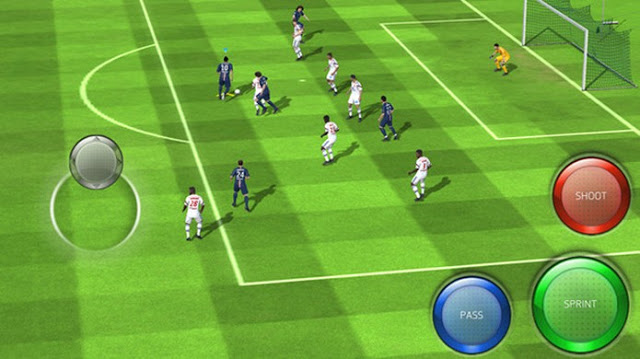

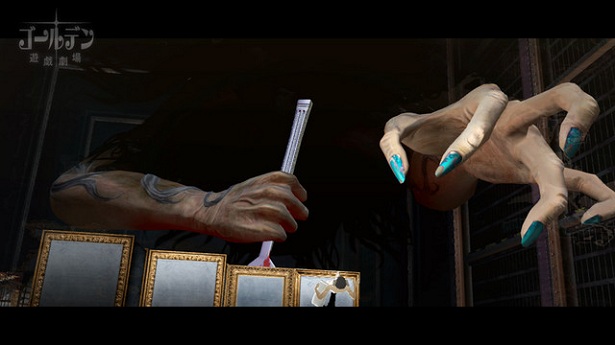
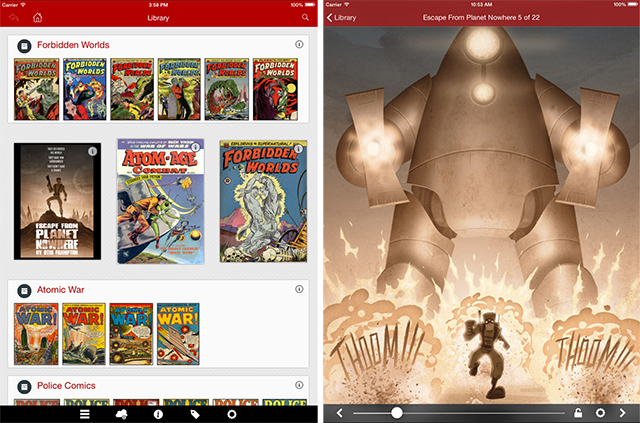
 Mass Effect Multiplayer: Volus Guide
Mass Effect Multiplayer: Volus Guide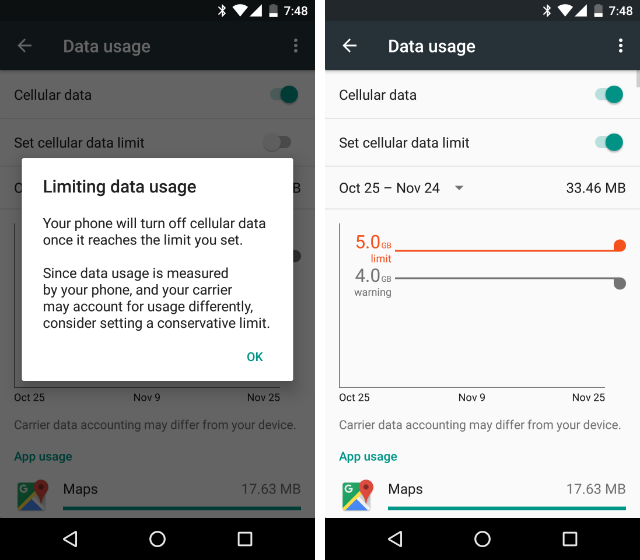 How to Prevent Any App from Using Mobile Data on Android
How to Prevent Any App from Using Mobile Data on Android How To Create A Workspace Where You Can Get More Done
How To Create A Workspace Where You Can Get More Done Major League Gaming App Comes To Xbox 360 With Live eSports Viewing
Major League Gaming App Comes To Xbox 360 With Live eSports Viewing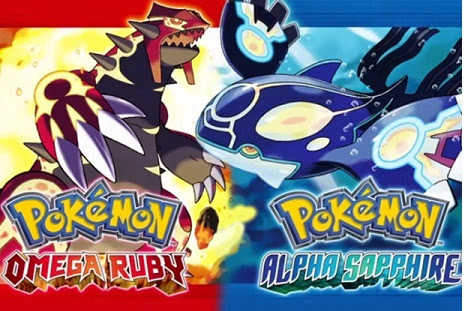 Battle Resort guide: Pokemon - Omega Ruby, Alpha Sapphire (3DS)
Battle Resort guide: Pokemon - Omega Ruby, Alpha Sapphire (3DS)